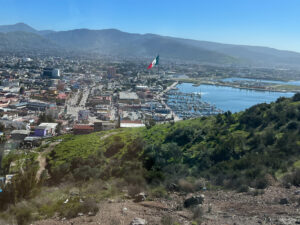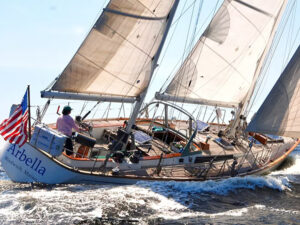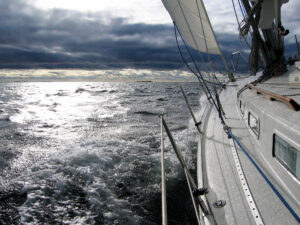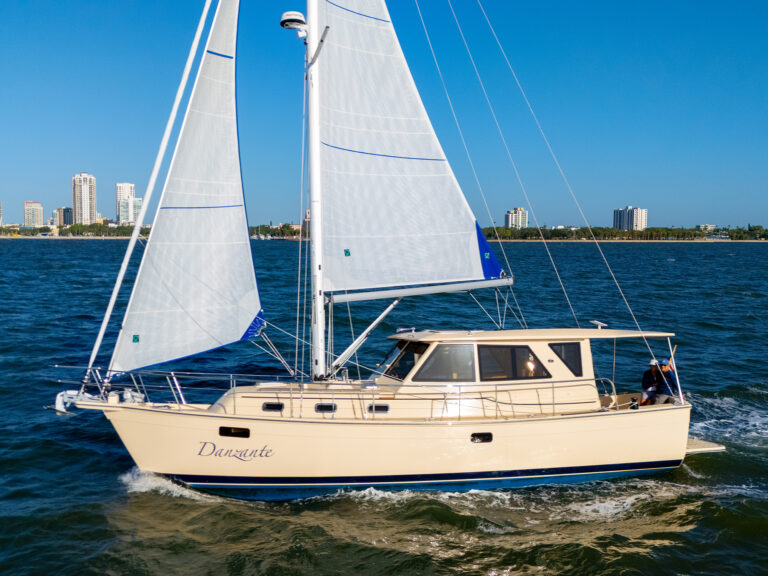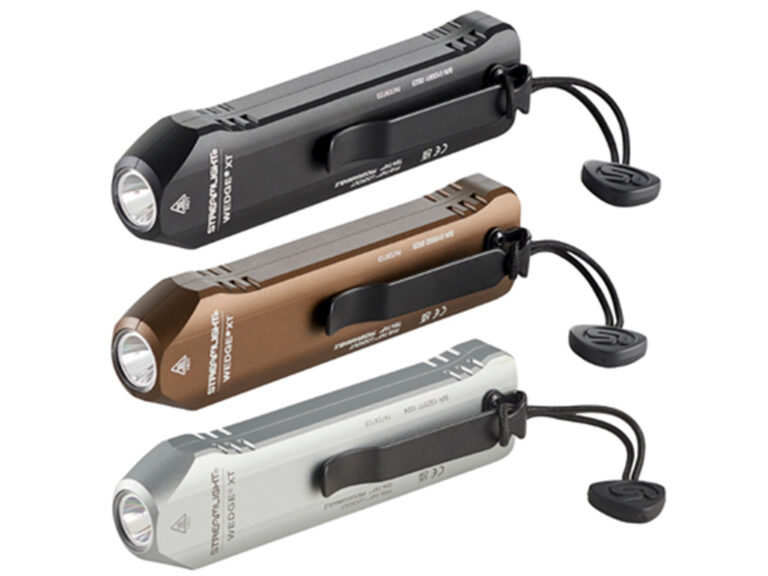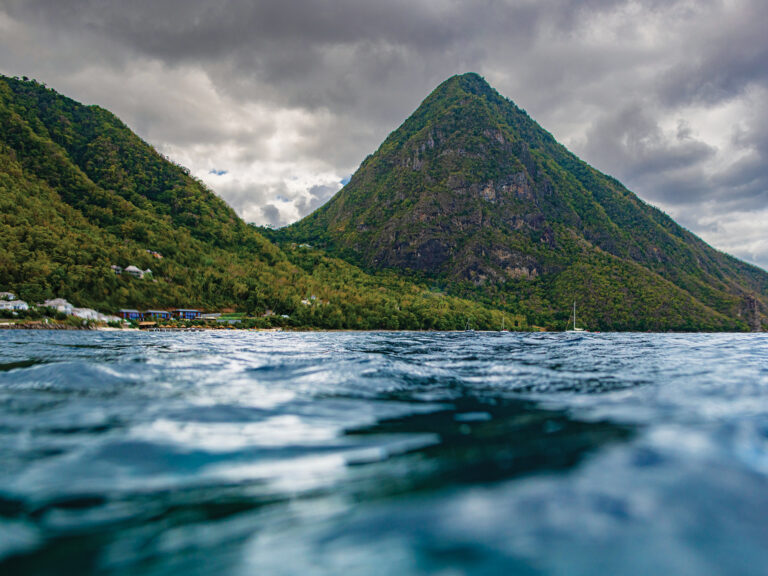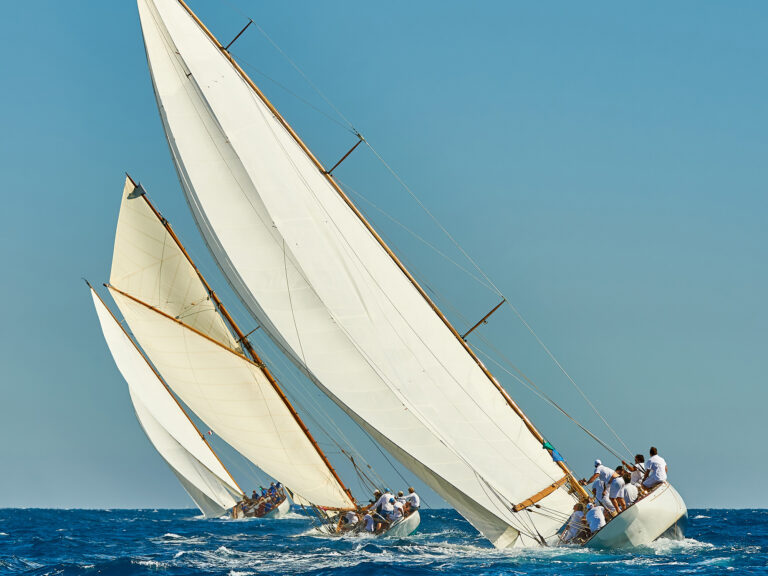
radio nets 368
If you cruise internationally, sooner or later you become ensnarled in the marine radio nets. My wife, Carolyn, and I have a love/hate relationship with them because they’re so useful and fun, while being, at the same time, so frustrating. Mostly, though, they’re boring. That’s OK. You expect endless “at sea” position reports to be a tad dry. But sometimes they’re superboring.
The marine community is composed of a lot of divergent people; not all of them have highly developed social skills. For instance, there’s the German singlehander sailing the catamaran I’ll call Catstipation; we encountered him in the Caribbean.
“Eck, not so good today,” lamented Gunter during his daily call in to the cruising net. “Stubborn! Maybe better progress tomorrow.”
You never quite knew with elderly Gunter which two of his obsessions he was reporting on: the progress of his vessel or his glacier like bowels. But that’s the beauty (and the ugliness) of SSB nets and on-air communities in general: Once the mike’s keyed, you have the floor, for better or worse.
Occasionally, the calls are a bit too exciting. Once in Bora-Bora, we tuned into a marital spat that riveted attention. “Help!” the quivering female voice said on VHF Channel 16. “Emergency! Or Mayday. Whatever! I’m being kidnapped. We’re 98 days out of California. I can see an island to the south, Bara-something, I think. He won’t stop-he says Tonga and Fiji are only a month or two more. Let me off this vessel!”
“She doesn’t seem to be enjoying the passage quite as much as he is,” Carolyn noted dryly.
“Perhaps she prefers the shorter hops of only two months or so,” I chipped in.
However, a damsel in distress is a damsel in distress. A French speedboat dashed 20 miles northward to pluck her off. Once she was on the other vessel, her skipper/husband saw the marital light, and he, too, set a waypoint for Bora-Bora. He’d built the very heavy, very short, 20-foot-in-diameter-it was nearly round-aluminum vessel himself on his farm without much concession to 20,000 years of maritime tradition, and it sailed about as well as, well, a foam-filled tractor would have.
“Maybe I’ll build another one,” he told me sadly. “But longer and with a taller mast this time.”
For some reason, the Society Islands seem to have a lot of strange radio happenings. In Moorea, all the classy Euro resorts listened to a specific VHF channel. On it, there was a young, very active Scandinavian sailor in the harbor who was a bit of an audio exhibitionist, and he’d key his mike during certain dramatic moments with the local ladies. This made for, I’d imagine, some rather bizarre moments during hotel check-ins. (Finally, a compelling reason to scan, eh?)
This isn’t even mentioning the “worry nets,” as I call them: nets that specifically address safety and security. I seldom tune in, preferring to get my bad news firsthand. But if you like to read True Detective, you’ll love the rape, murder, and dinghy-theft reports.
Many of the most successful nets feature a “weather guru” who helps out the local boats with his insightful forecasts. My favorite was the aptly named David Jones of Tortola, who routed me around the world (first on SSB, then via webmail) during my first circumnavigation. I listened to David every morning for years while in the Caribbean. What I admired most about him wasn’t his forecasting ability, which was superb, but his amazing patience.
If a “premium client” (one who’d sent him some money) asked for a weather window to the fuel dock in St. Lucia, he wouldn’t bat an eye. “I’d leave your slip around 1015, and you should have a downwind run to the gas pumps 400 yards away. If you return at 1100, the just-switched tide should be favorable and the harbor chop slight. Yes, you’ll be hard on the wind the whole 12 minutes of the return leg, but even heavily laden with diesel and water, it shouldn’t be a problem with an additional rev or two on the iron jib. The entire round-trip shouldn’t be a major problem, weather-wise. Good luck!”
Some daily nets are rather strict: The Pacific Seafarers ham-radio net is one that allows no monkey business. They immediately check to make sure all F.C.C. licenses are legit, and all vessels have to record their positions at the same instant, not merely when the roll is called. And the weather information must be given in an exact order; just sticking your head out the hatch and reporting “15, from the east” won’t cut it.
I could never quite get the hang of it-and trying to sneak in a bit of humor was frowned upon. I didn’t last long.
The persona of the net controller is very important, of course. If net control is too strict, it’s no fun, and if it’s too lax, well, it’s utter bedlam.
In Trinidad, the local “treasures of the bilge” section-the buy, swap, or trade time-regularly had a drunk who listed his table scraps of potato and carrot peelings and empty wine bottles for sale.
What could net control say but “Thanks for that, and moving right along!”
One of my favorite nets (and a very popular one in the Pacific) was The Rag, out of Fiji. It was (and still is?) run by a politically crazed American named Jim. Jim had been “given” a small island by a grateful local chief in return for sharing his boatbuilding skills. A former Jaguar mechanic with views more conservative than Rush’s, he’d always wanted to be a preacher, so each Sunday he’d give a sermon by the Right Reverend Jim about the sorry state of the world. Some were excellent, others horrible. But we listened, because Jim had a heart of gold, despite being to the right of Genghis Khan.
I’m currently involved with the Indian Ocean net; called the IO net, it covers an area from Malaysia to Africa. It’s an informal net designed to help passagemakers transit from Thailand to the Med via the dreaded Red Sea. Since it passes through the world’s most dangerous waters-think: Somali pirates-it’s a smidge more confusing than most radio gabfests. For instance, its time and frequency changes aren’t given on air in case the high-tech pirates-after all, they’ve got millions to lavish on marine electronics-are tuned in. These changes are conveyed only by means of Winlink and SailMail via SSB modem and shipboard e-mail.
Alas, on the day before the first scheduled time and frequency change, one of the volunteer net controllers didn’t quite grasp this covert plan. So he blabbed and blabbed the secret info time and time again. Various people attempted to stop him subtly (and not so subtly) with hints, but this just created more befuddled confusion-which only made him repeat the taboo information in a louder and firmer tone of voice.
It was instantly apparent to all of us netizens that this James Bond stuff, so clever sounding during cocktail hour, wasn’t as easy as you might think to pull off. Not only was our first attempt at secret keeping highly comic; in the end, the secret got repeated so often that pretty much every vessel from New Zealand to London knew our not-so-secret secret, much to their amusement and our chagrin.
Position reports weren’t straight forward either. After all, it’d be crazy to just tell the frequency-scanning pirates where our vessels, devoid of radar reflectors and running lights, were invisibly ghosting along toward Oman, wouldn’t it?
So we selected a series of waypoints between Uleguma, or Uligan, island, in the Maldives, where I am now as I pen these words, and Oman. We’re going to give bearings and distances only from those waypoints to confuse you know who.
I suspect that this will just serve to confuse ourselves and that we’ll simply end up not knowing where anyone else is. We might get so confused that we don’t even know where we are!
Plus, while sailing between Oman and Aden, Yemen, in formal convoy, we’re not supposed to use our real boat names during our terse, low-wattage VHF calls; we’re supposed to use military-sounding ones. I’m Eagle One, and my buddy Tom, on Katanne, is Raptor. How goofy is that?
“Great,” said Carolyn. “Now, besides not knowing where we are, we won’t even know what boat we’re on!”
The fact is that all this secrecy stuff is driving us around the bend. Carolyn recently glanced at me in midocean while I was sitting at the chart table and asked innocently, “How many miles to go?”
Needless to say, I was immediately suspicious. “Who’s asking?” I said. “And has that person established a ‘need to know’ basis? Could she be in cahoots with the Somali pirates, or even in casual contact with ’em? And why the sudden interest? Such info could be sold, couldn’t it?
“Have you turned on me, Carolyn?”
Honestly, though, the IO net has more than 50 boats representing 28 countries, and we all get along amazingly well. The cruising and navigation information we exchange is priceless. Example: If you clear into Male in the Maldives for a couple of days, it costs US$200, but friendly Uligan is only US$10 for a far more pristine anchorage. That’s a significant savings to a penny-pinching globetrotter such as myself.
So listening to the SSB cruisers nets, despite the confusion, is usually worth it. And they almost always bring a smile to my face. Like back in the 1970s in the Caribbean, when Gunter aboard Catstipation would happily announce, “Good news! Smooth sailing this morning. All is well on board!”
Netsters Cap’n Fatty and Carolyn Goodlander are convoying up with their ears on, bound for the Red Sea.

